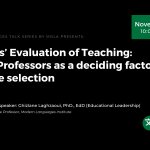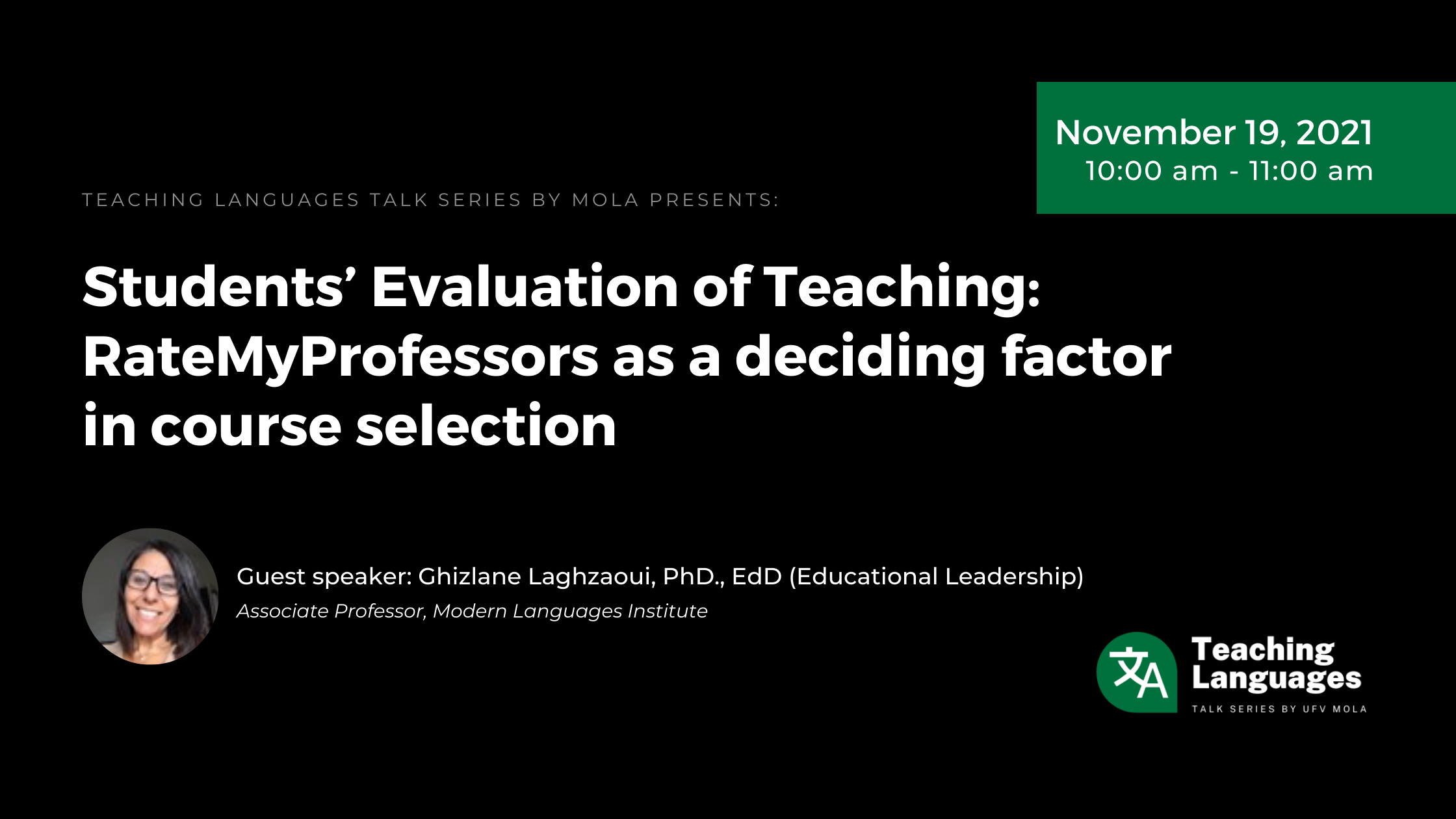
How would an instructor or a department react if they knew students choose courses and sections based on RateMyProfessors ratings?
This research examines what criteria students give priority to when evaluating the performance of language teachers on the online platform RateMyProfessors (RMP) and what factors are determinant in students’ engagement. More specifically, this study explores the review practices of students and students’ perceptions in rating effective teaching practices in order to develop a reflective process upon which a language program can act to innovate. While our focus is on French language, there are broader pedagogical implications for other disciplines and for post-secondary institutions as a whole as it discusses students’ evaluation of teaching, an area where their input is critically needed.
Although the RMP website is strongly challenged in its validity by the academic community for its lack of reliability and credibility, it is nonetheless very popular among students in all disciplines for several reasons : 1- for its characteristics: thoughtful feedback, convenience and user-friendliness; and 2- for its usefulness in choosing a course and an instructor (Otto, Sanford and Ross, 2008). On the one hand, research on formal students’ evaluation of teaching (SETs) shows students’ unequivocal dissatisfaction with classroom-based evaluation of teaching due to lack of follow-up and feedback, and absence of direct impact on their learning experience (Shevlin, Banyard, Davies & Griffiths, 2000; Howard and Symnaluk, 2001; Brown, 2008; Brown, Baillie and Fraser, 2009; Duque, 2013; Freistat, 2016). On the other hand, Howard and Symnaluk (2001) showed that the majority of students favour published ratings of instruction. The main issue in SETs appears to be that they are more directed to help decision making in recruitment and tenure and promotion (summative purpose) rather than enhancing students’ learning experience (formative purpose). It has also been noted that, despite the bias and false submissions, “students continue to use [RMP] when making academic decisions because they typically have no alternative means to learn about an instructor” (Brown, Baillie and Fraser, 2009, p.90).
This qualitative research looked at RMP ratings from eight BC universities with similar programs in French. Data has been collected from 30 French language teachers’ public ratings and is comprised of tags and comments as well as descriptive statistics and any demographic information available on the public site. The data analysis focussed on thematic content analysis coupled with discourse analysis in order to determine what criteria can be taken into account in describing and assessing instructors’ teaching effectiveness.
The data analysis showed that because the learning experience is perceived as being transactional in nature, students’ criteria on teaching effectiveness tend to give priority to predictability, likeability and caring and how they impact learning, engagement and motivation. The alleged inadmissibility of public and uncontrolled evaluations no longer allows instructors to ignore these “hidden transcripts” (Scott, 1990), voices and opinions on teaching performance. Because the choice of a course, from students’ perspective, relies on the ratings of RMP, how this practice can impact enrolments and, to some extent, the success or the failure of a program?
Zoom Meeting Details to follow….stay tuned!
Fri, Nov 19
10-11 am
Online
For more information, contact Renate Johnson at renate.johnson@ufv.ca
10/19/2021

